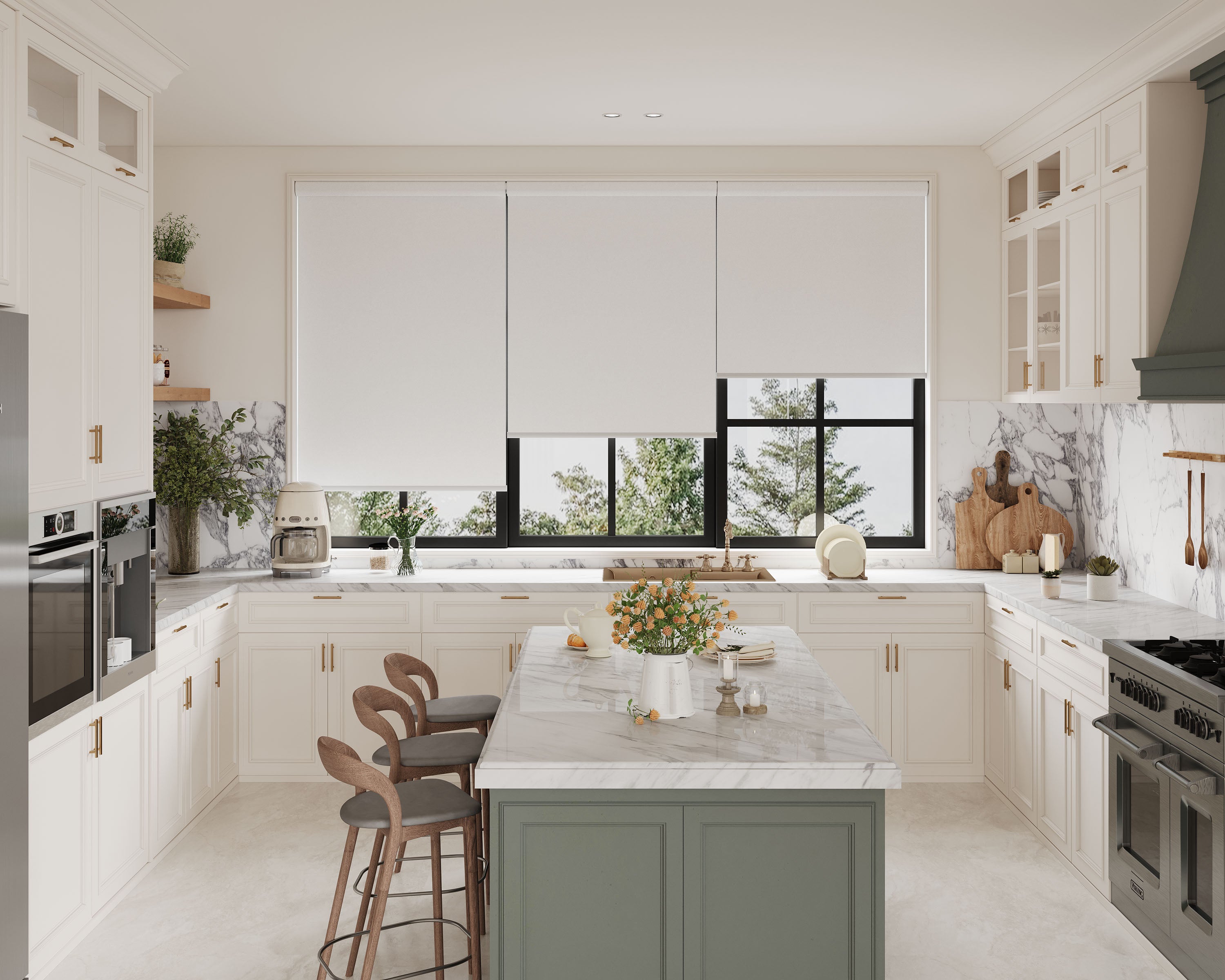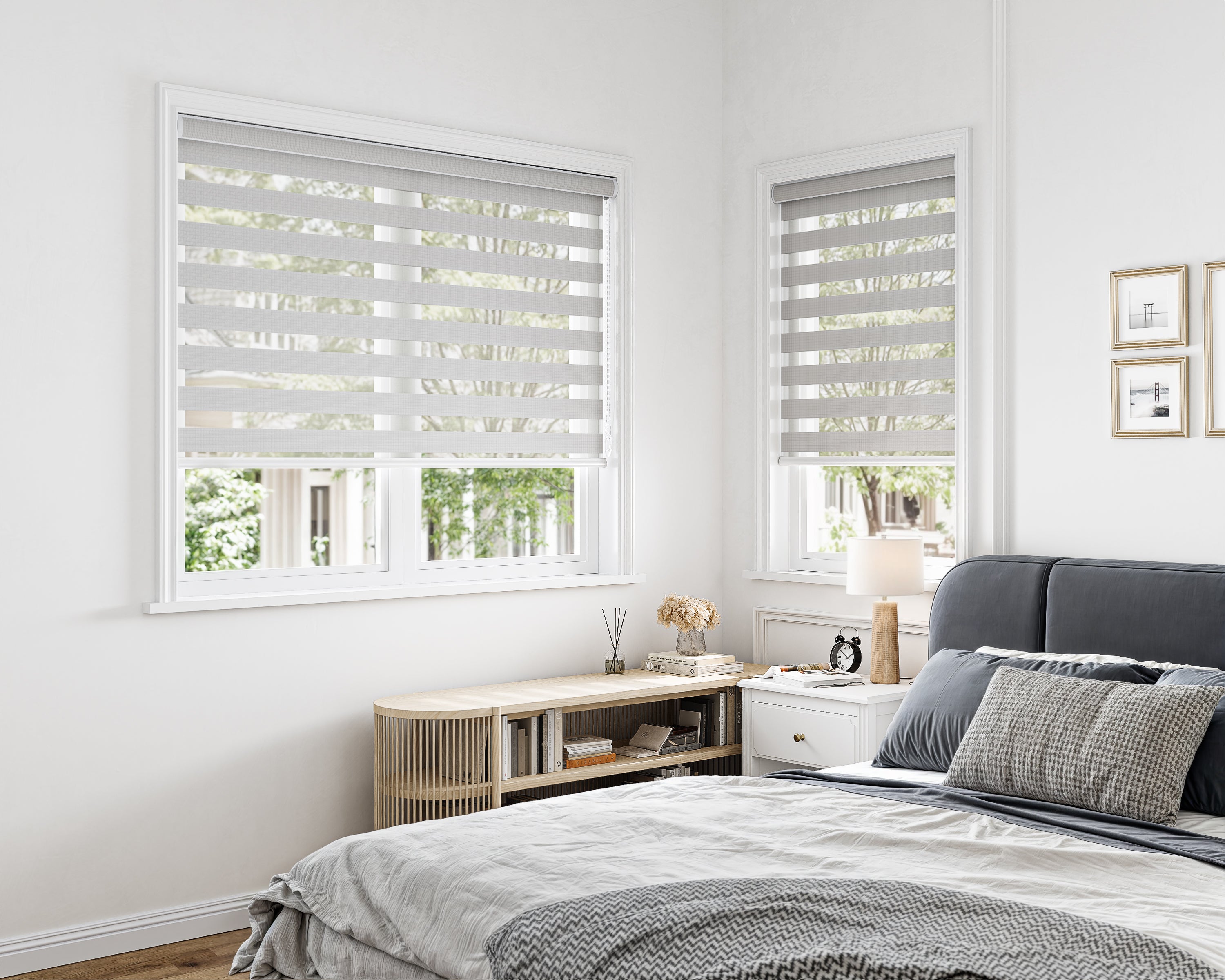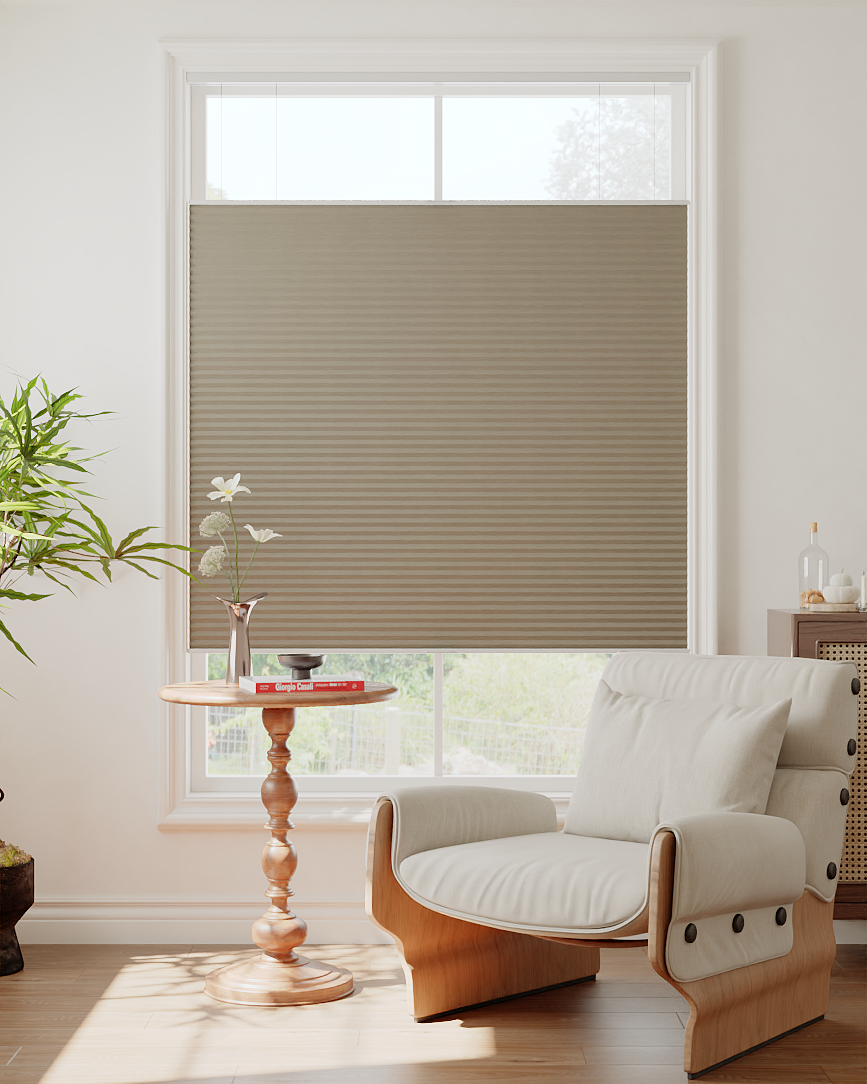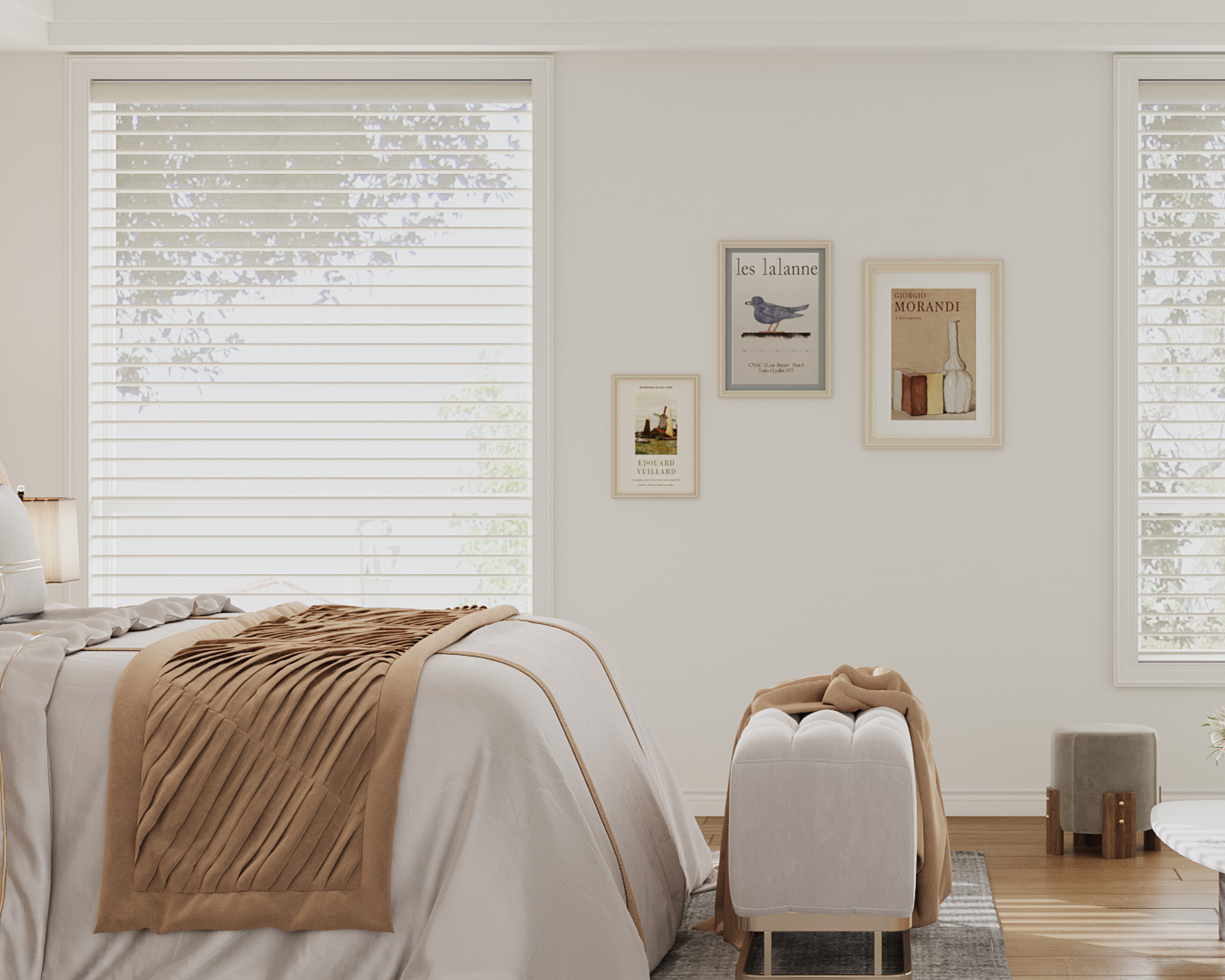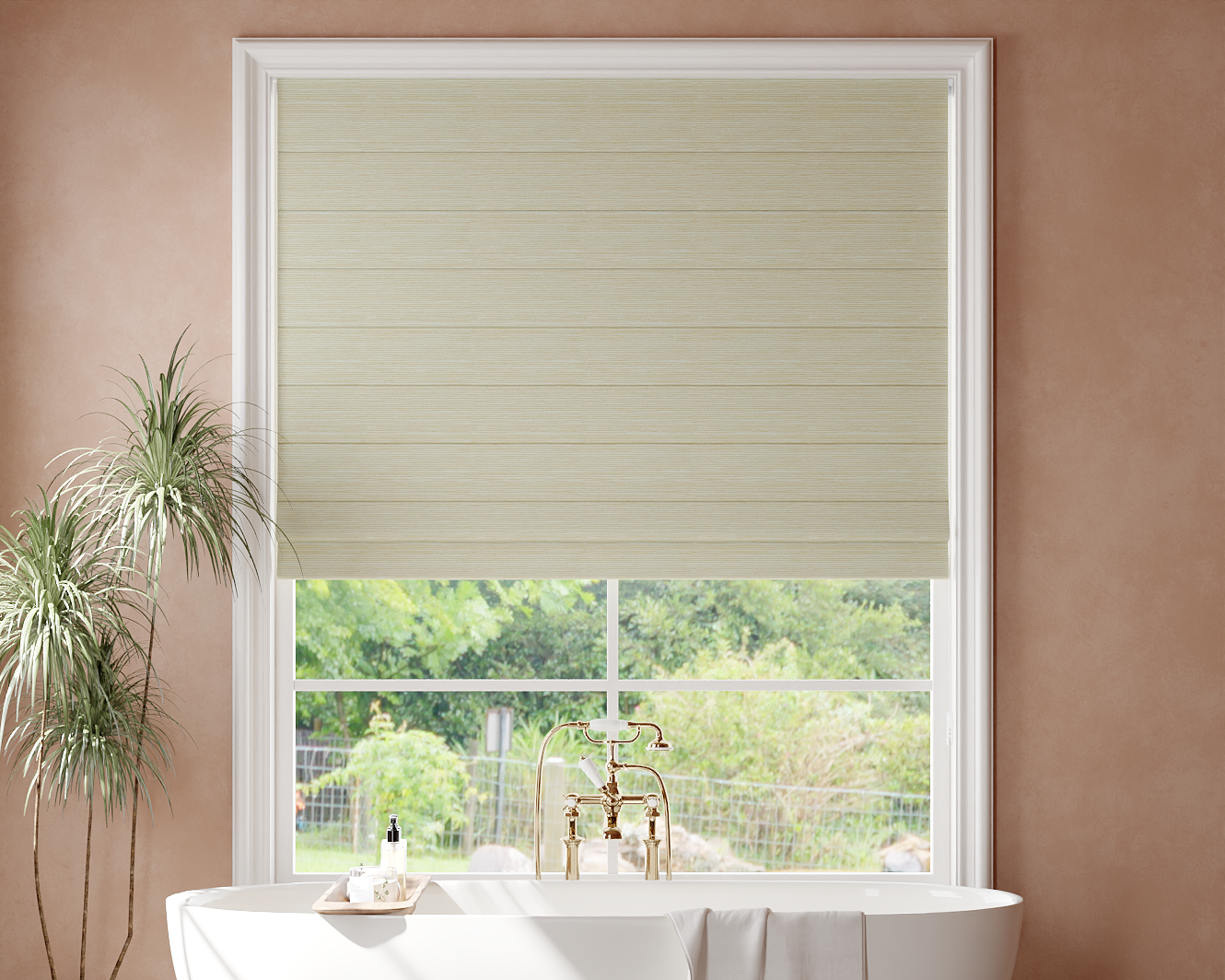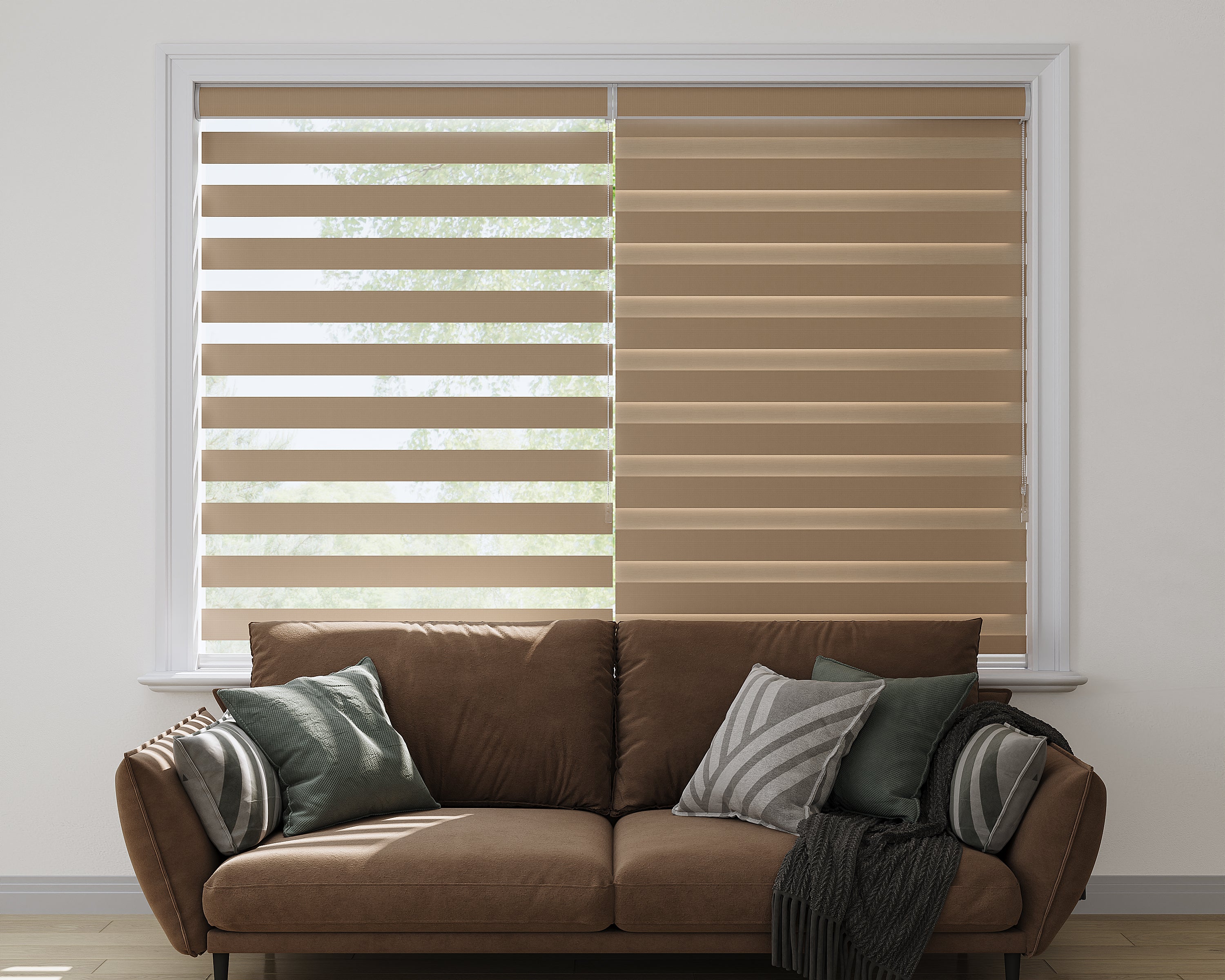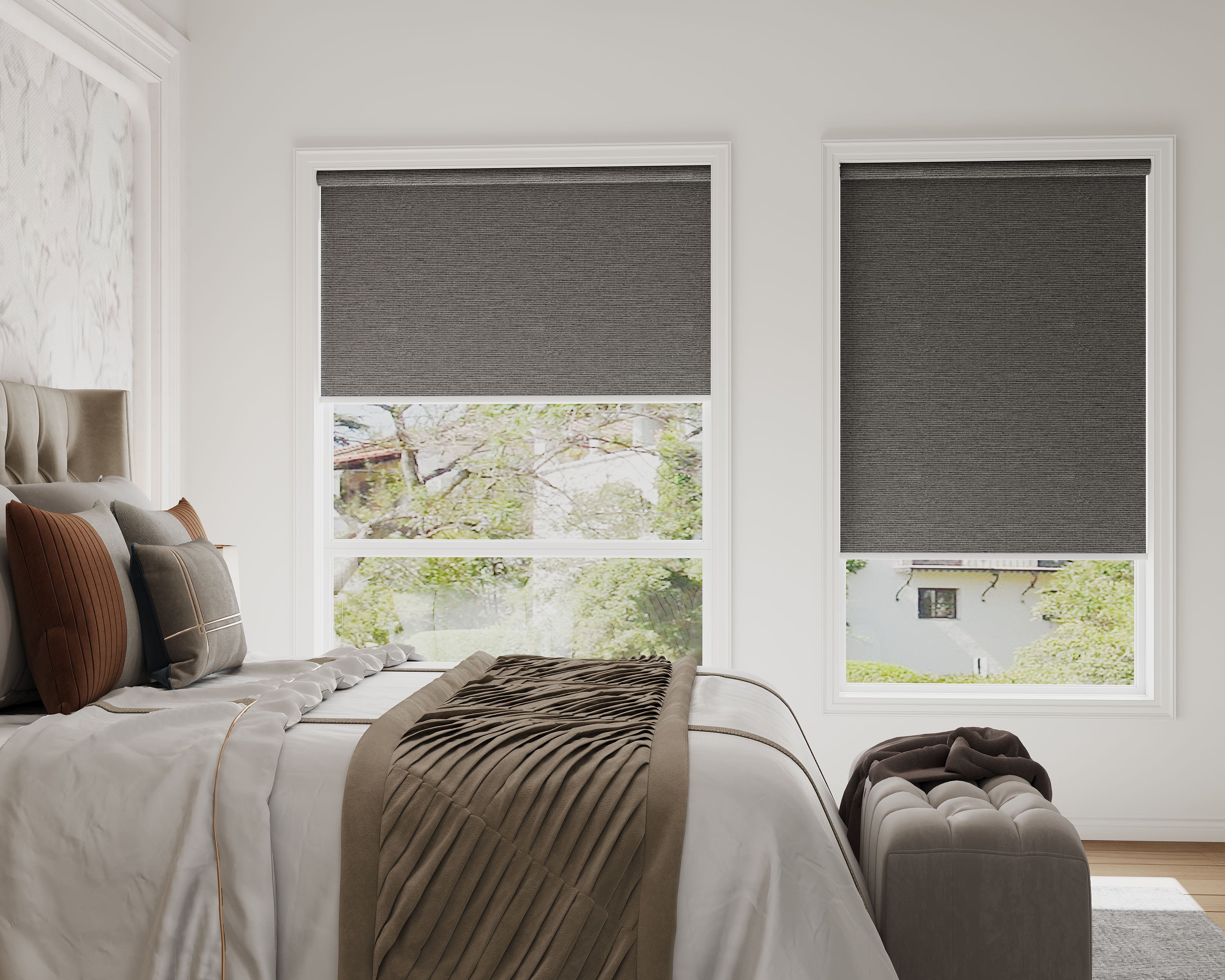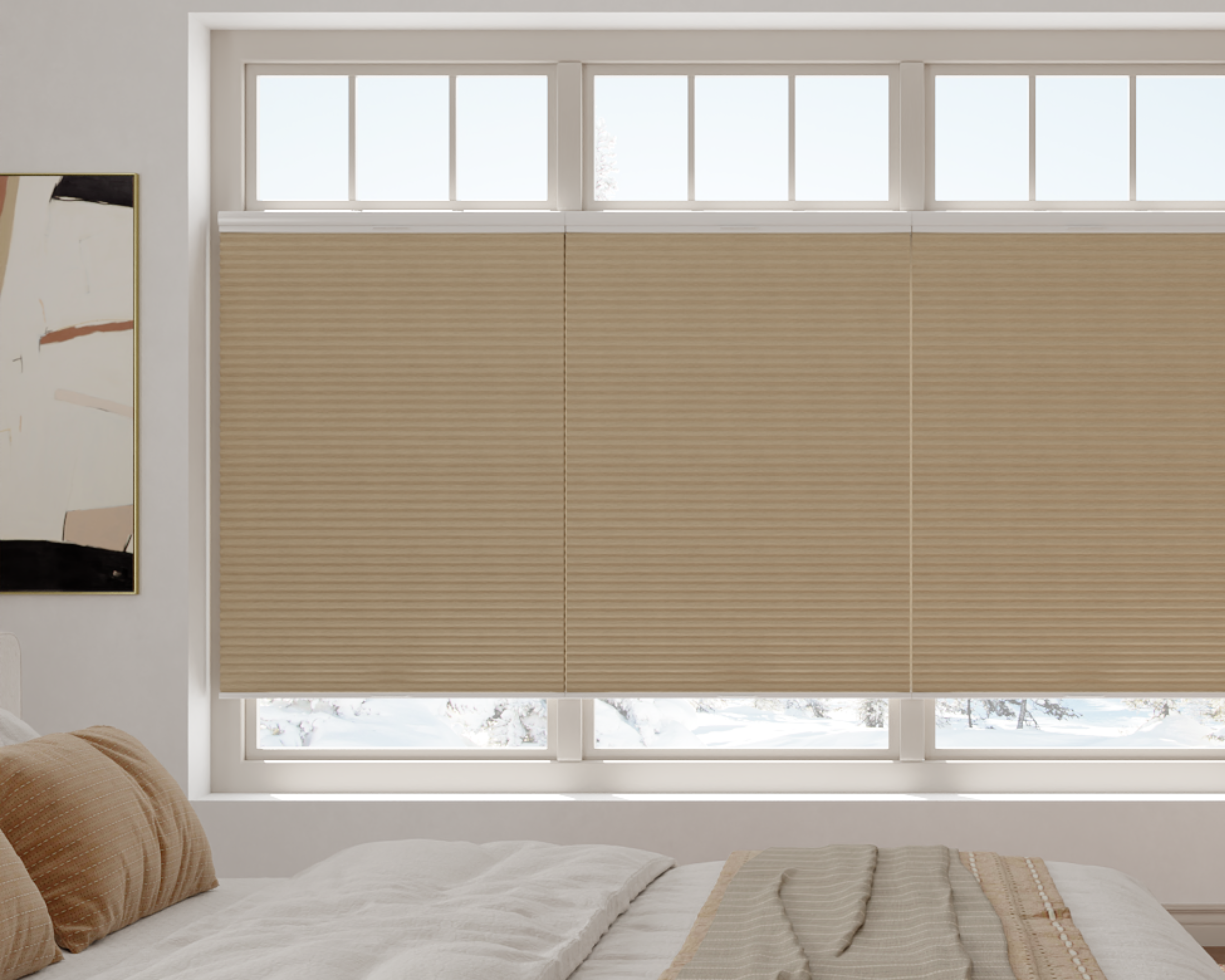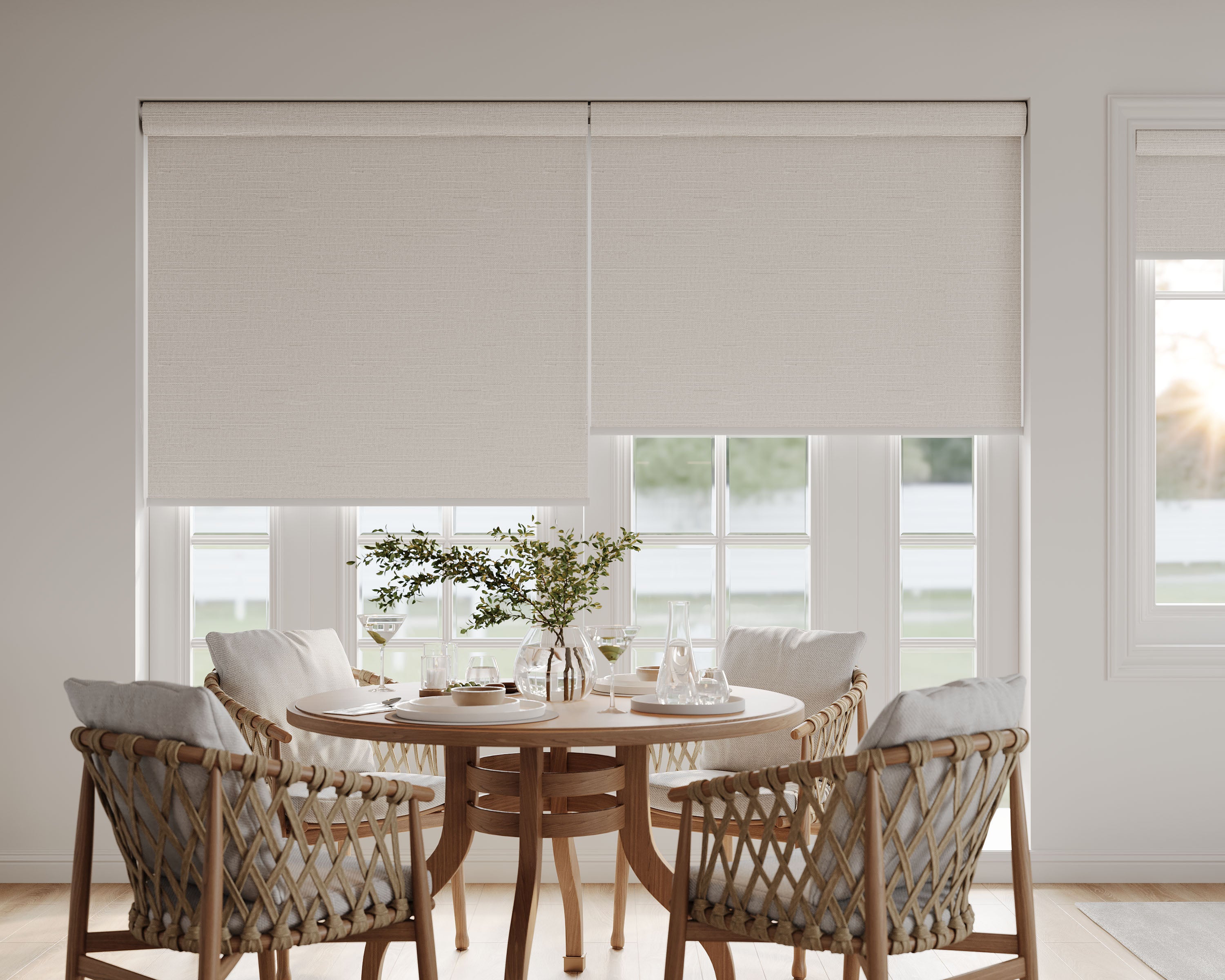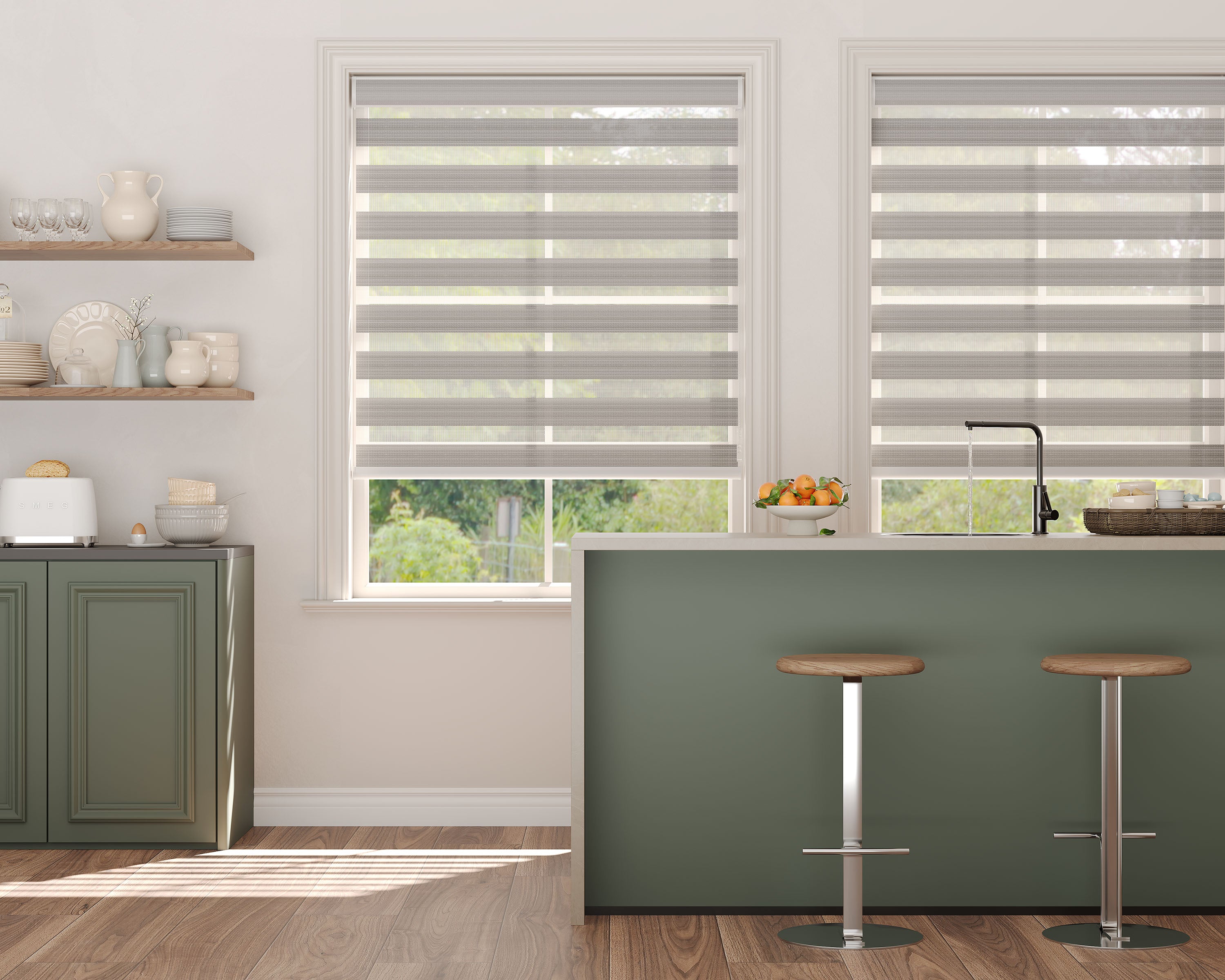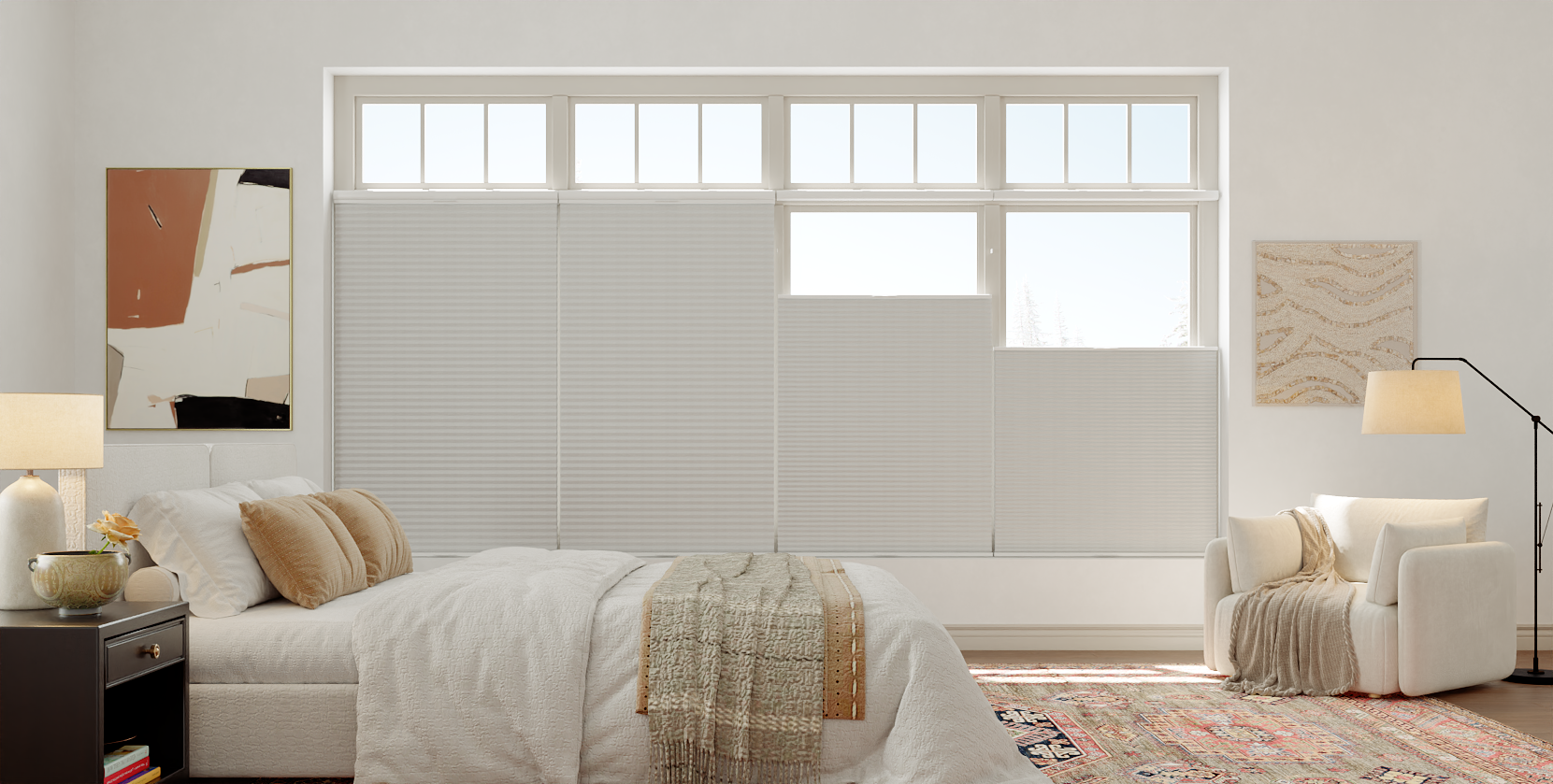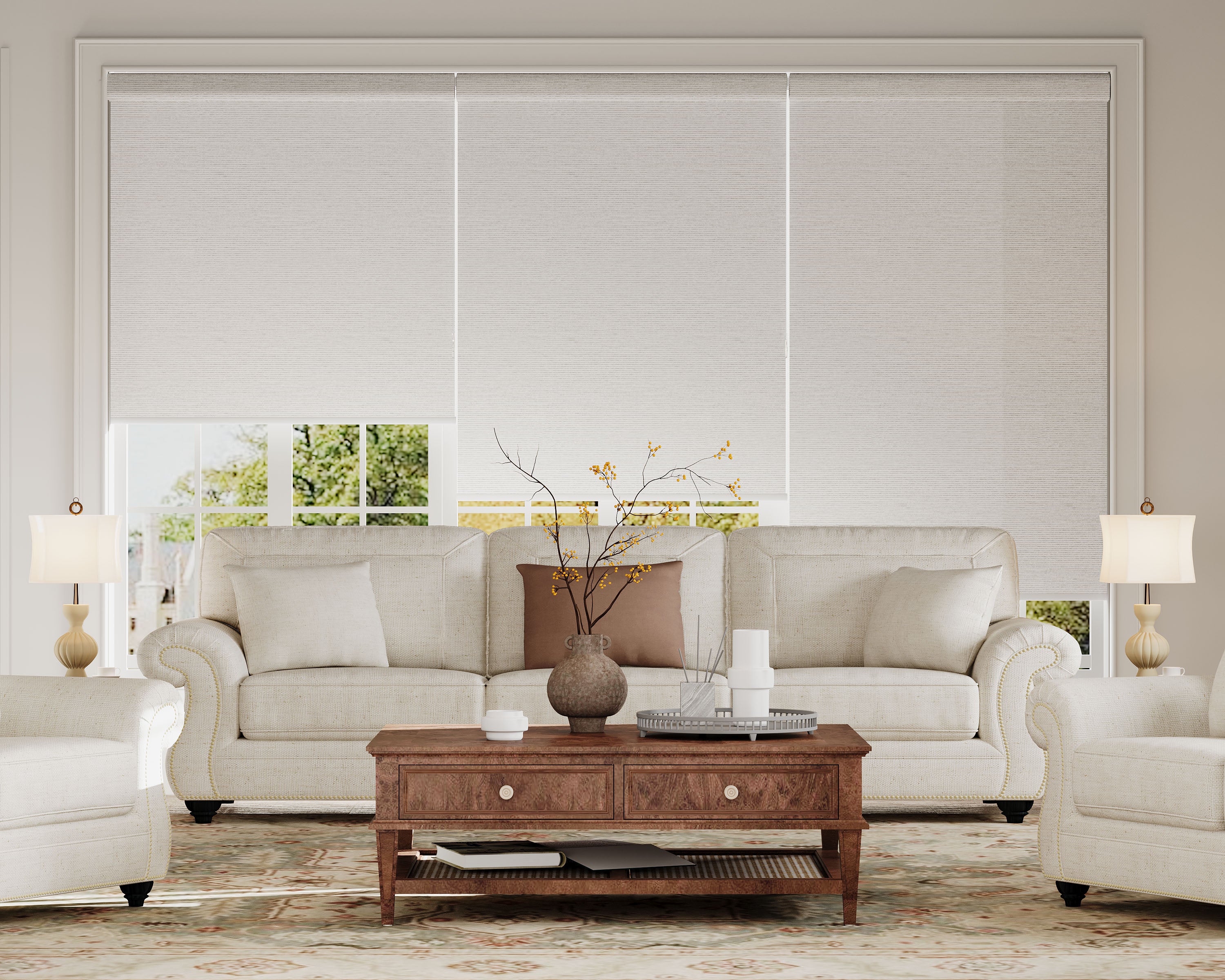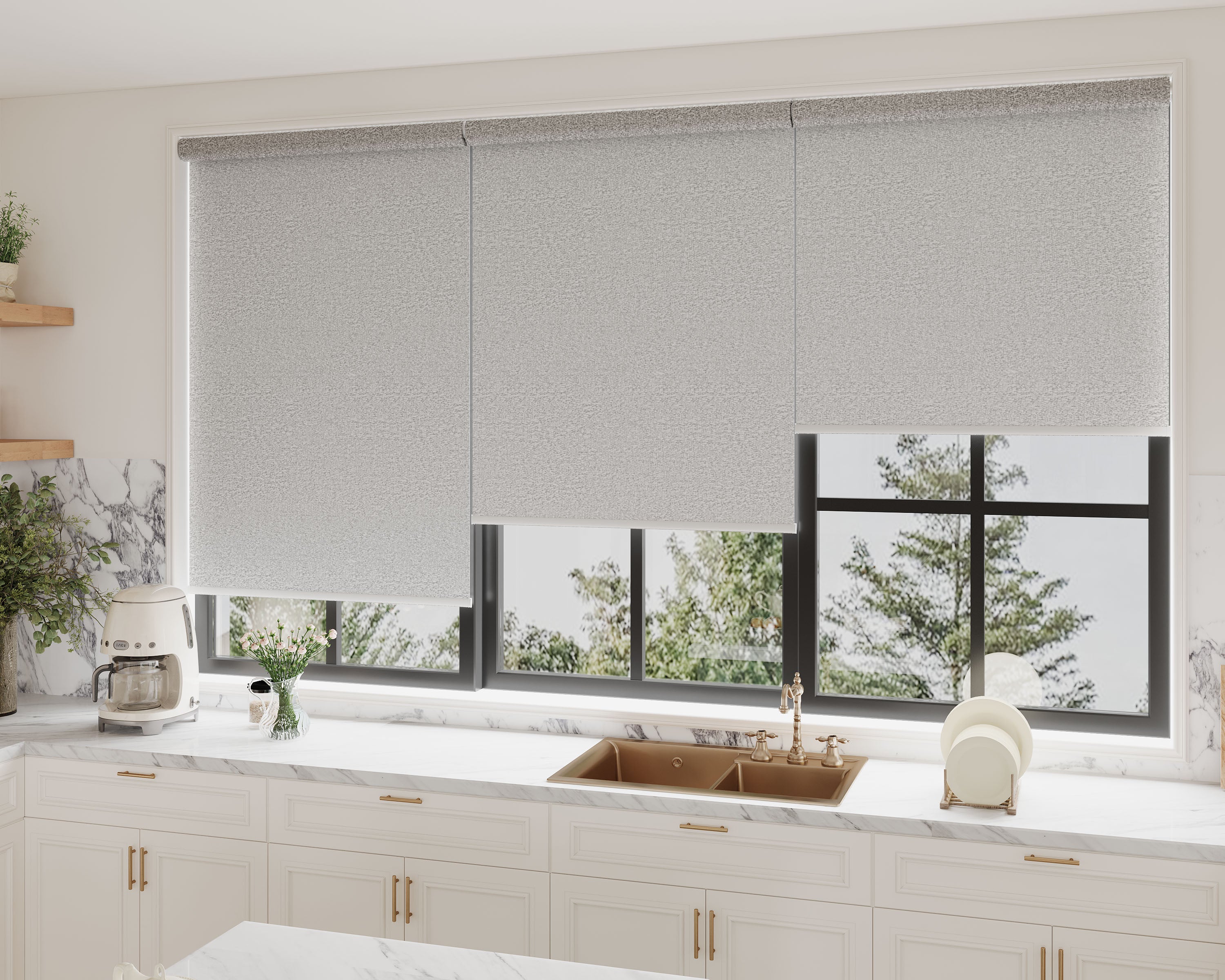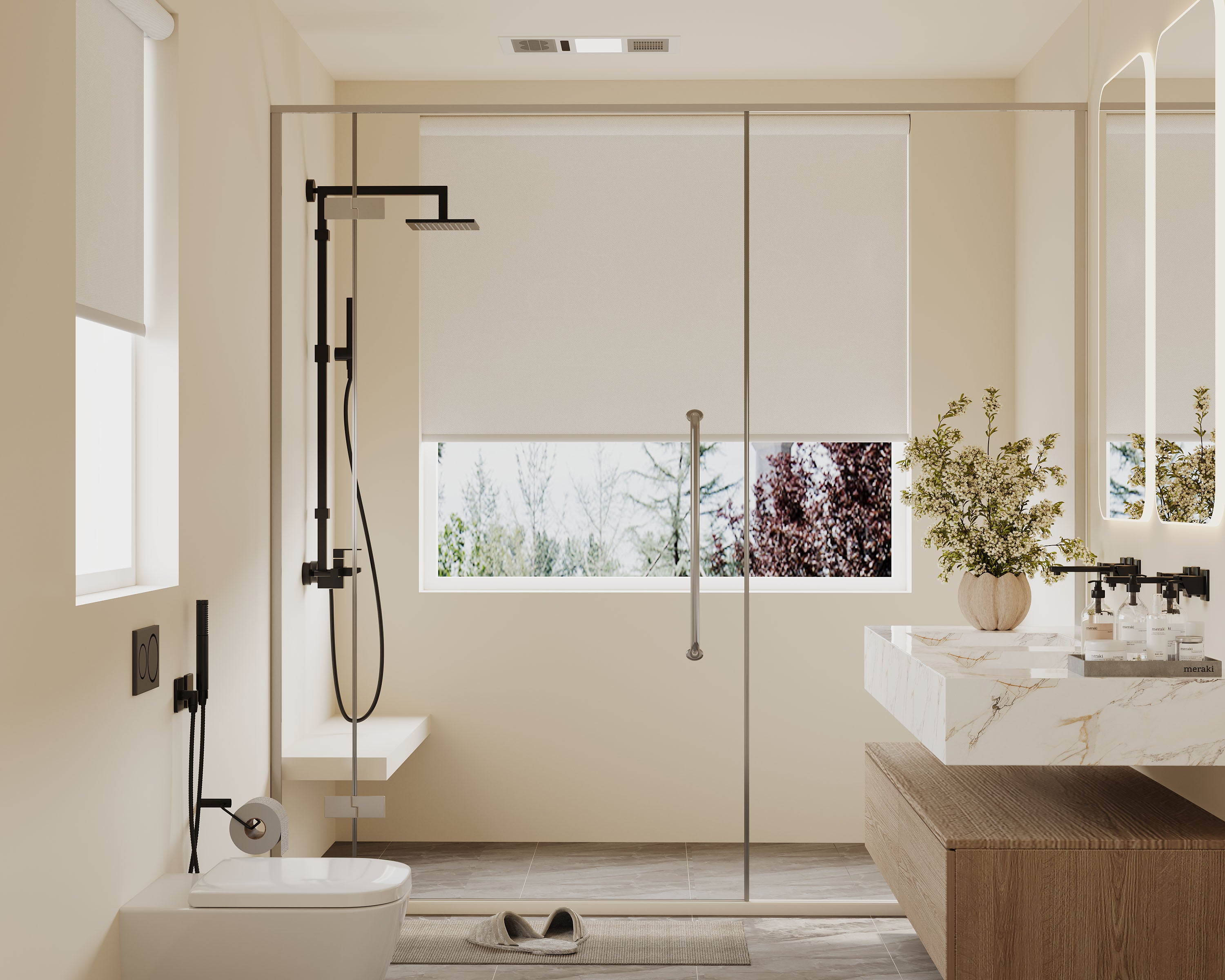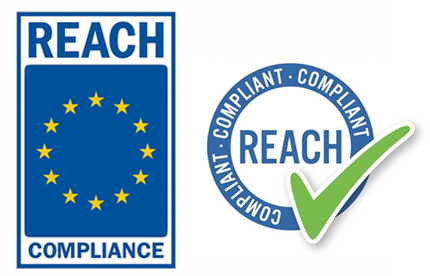Explore our top collections, including Roller Shades, Zebra Shades, and Blackout Shades.
We all love sprucing up our spaces with new window shades, but let’s be real—the price you see online? It’s often just the start. The real cost of ordering shades online can shoot up fast once those hidden fees pop up in your cart. From surprise shipping to sneaky customization costs, those extras can really pile on.
Nobody wants to get blindsided by fees for returns, installation, or warranty loopholes. If you know what to watch for, dodging those extra costs isn’t all that hard—and suddenly, online shades can actually be as affordable as they look.
Key Takeaways
- Always check the real total before you hit “Buy”
- Look out for extra fees: shipping, customization, returns
- Don’t skip the fine print on warranties and payment terms
Understanding the True Cost of Ordering Shades Online
When you’re browsing for shades online, that first price tag rarely tells the whole story. Plenty of little details and pricing tricks can make your total balloon way past what you planned.
Base Price vs. Final Price
That low sticker price? It’s almost always just for the smallest, simplest shade in the most basic fabric—no frills. The minute you want custom sizing, blackout lining, or a fancier fabric, the price climbs.
Even things like mounting hardware or cord choices can cost extra. And don’t forget about taxes, shipping, or mysterious “handling” fees. To see what you’ll really pay, run through the full checkout process with your actual specs.
Quick reminders:
- Double-check every customization
- Review your cart line by line
- Ask about costs for big or weirdly shaped windows
Common Pricing Methods for Online Shades
Shade sellers use a few different pricing games. Some give you an “all-in” price with most features baked in, but your choices might be limited. Others go a la carte—every upgrade, every option, it’s all extra.
You’ll see promo prices for certain colors or sizes, or sales that only run at odd times. Quantity discounts and bundle deals can sound great, but sometimes they rope you into buying more than you need.
Here’s a quick table to break it down:
| Price Model | What’s Included | What Costs Extra |
|---|---|---|
| Base Price Only | Basic shade, size | Upgrades, hardware, delivery |
| All-In Price | Most features, shipping | Premium materials |
| A La Carte | Nothing | Everything (customs, upgrades) |
It’s worth pausing before you click “add to cart” on the cheapest option. Knowing how a store prices things helps you steer clear of surprise charges—and that dreaded feeling when you see your final bill.
Shipping Surprises: Fees Lurking in the Checkout
Shipping and handling fees have a sneaky way of popping up at the last second. That “free shipping” banner? Sometimes it comes with strings attached, and you won’t know until you’re about to pay.
Standard, Expedited, and International Shipping Costs
“Standard” shipping isn’t always standard. Free shipping might only apply to big orders or certain zip codes. Need your shades in a hurry? Expedited shipping usually tacks on a hefty extra—sometimes 20–30% of your order.
International shipping? That’s a whole different beast. Customs, duties, taxes—they’re often not included up front and might show up after you order. Always dig into the shipping policy and try the shipping calculator before you buy.
Quick comparison:
| Shipping Type | Typical Fee Range | When You’ll See Extra Charges |
|---|---|---|
| Standard | $0–$20 | Small orders, special promos |
| Expedited | $15–$60+ | Rush delivery, holidays |
| International | $30–$120+ | Customs, taxes, remote addresses |
Remote Area Surcharges
Live out in the sticks? You might get hit with a remote area surcharge. Some companies tack this on for hard-to-reach locations, and you might not see it until the very last step.
UPS and FedEx keep lists of zip codes that get surcharged. If you’re not sure, punch your address into the shipping estimator or ask customer service. It’s worth the couple of minutes to avoid a nasty surprise.
Handling and Packaging Charges
Not every fee is called “shipping.” Sometimes you’ll spot handling or packaging charges—especially if your order is oversized, custom, or fragile.
You might see:
- Basic packaging: Usually free
- Oversized/heavy-duty surcharge: $8–$25
- Handling fee: $3–$15
These can be buried deep in checkout or hidden in the fine print. Always scan your cart for weird charges, click “see details,” and don’t be shy about asking support if something looks off. The more you ask now, the less you’ll regret later.
Hidden Customization Charges
Ordering custom shades online? Don’t assume the price you see covers every detail. Extra costs can sneak in for odd sizes, premium materials, or tricky installations.
Upcharges for Uncommon Sizes
Most sites show prices for “standard” sizes. Need something wider or taller? That’s probably going to cost more. Sometimes it’s a fee for every inch over standard, especially for really big windows.
Example:
| Window Width | Base Price | Upcharge per Inch (over standard) |
|---|---|---|
| 36” | $89 | N/A |
| 42” | $89 | +$10/inch over 36" |
Check the size chart before you order, and don’t gloss over words like “oversize surcharge.” Use the site’s quote tool to see your real price before you commit.
Material and Color Selection Fees
Want a special color or a fancy fabric? That’ll often bump up the price. Most stores keep their cheapest deals for basic colors and fabrics. Go for blackout, eco-friendly, or designer options and you might pay 15–30% more.
Sale prices often only apply to white or beige. Before you fall in love with a particular swatch, click through the upgrade options and see if your dream shade fits your budget.
Special Mounting Requirements
Not all windows are created equal—bay windows, French doors, or extra-deep casings might need special hardware. These extras aren’t always obvious and can run $10 to $50 per window.
Watch for notes about outside or ceiling mounts, or anything “custom.” If your setup isn’t standard, read the install notes and tally up hardware costs separately.
It’s smart to email customer support with your window specs and a photo. They’ll tell you what you need and what it’ll cost, so you’re not guessing.
Installation and Service Extras
Extra costs don’t always end when you pick your shades. Service add-ons like installation and measuring can quietly jack up your final bill.
Professional Installation Fees
It’s easy to forget about installation. Some companies offer “free shipping” but then charge big for professional install—anywhere from $50 to $200 per window, depending on difficulty and where you live.
Sometimes, you’ll only see these fees at checkout or buried in the FAQ. Ask for an itemized quote before you pay. If you’re handy, DIY can save a chunk of cash, but you’ll need to measure right and have the basic tools.
Tip: Ask upfront about installation fees. Also, check for minimums or extra charges for hard-to-reach windows. Sometimes, “free installation” just means the cost is baked into the shade’s price.
Measuring Service Charges
Professional measuring sounds helpful—especially if your windows are weird sizes—but it usually costs $25 to $100 per visit.
Some vendors let you measure yourself with step-by-step guides. If you do pay for measuring, check if it’s per window or a flat fee. Some brands will waive the measuring fee if you buy a certain amount.
To avoid paying extra, double-check your tape measure skills. If you’re not sure, ask for a measuring checklist or template—they often have free digital guides. Getting it right the first time saves you from paying for returns or re-orders.
Return Policies and Restocking Fees
Return shipping and restocking fees can sting if you’re not expecting them. Knowing the details before you buy can save you a lot of hassle—and money—if your shades don’t work out.
Return Shipping Costs
A lot of online stores make you pay for return shipping, especially if the product isn’t defective. For big or heavy shades, that can get expensive fast. Custom orders almost never come with free return shipping.
Some stores offer free returns, but it’s usually for standard or unopened stuff. If you’re sending something back because you changed your mind, check the policy. Look for “free returns” or ask customer service to be sure.
Also, see if they give you a prepaid return label. If not, you’ll have to handle packing and shipping yourself, and that’s rarely cheap. Here’s a quick checklist:
- Is return shipping free or not?
- Are custom shades excluded?
- Do they provide a return label?
Restocking Charges for Custom Orders
Returning custom shades is rarely free. Restocking fees usually hit 15% to 35% of your purchase price. Retailers do this because they can’t resell custom stuff.
The fee varies—a store might charge 20%, another might go higher for big or special orders. Sometimes it’s a flat fee on top.
Always check the fine print before you order custom. Here’s a quick table to help compare:
| Store Name | Restocking Fee | Applies To |
|---|---|---|
| Example Blinds Co. | 25% | All custom shades |
| Shade Shop | 15% | Only special fabrics |
| Budget Blinds | Flat $50 | Over 60” wide custom orders |
Comparing these policies before you buy can save you a lot of grief—and help you budget for your window makeover.
Warranty Coverage and the Fine Print
We all want to think our new shades are covered, but warranties often hide costs that can trip us up. The details sometimes sting—especially when it comes to making a claim or just getting a replacement part sent out.
Hidden Fees in Warranty Claims
Plenty of online shade sellers toss around “lifetime” or “limited” warranties, but that doesn’t mean claims are free. Processing fees or return shipping costs often pop up, even for covered issues. Some companies even want the original packaging or paperwork, which, let’s be honest, most of us toss.
Coverage might only apply to certain parts, so we could still end up paying for labor or specific materials. It pays to really comb through the warranty. Watch for words like “freight charges,” “handling fees,” or “service fees.” I usually search the warranty PDF for those terms before I buy—saves headaches later.
Replacement Part Shipping Charges
Getting a busted bracket or mechanism replaced sounds simple, but shipping those parts can get expensive. Some places say parts are free, but then slap on shipping or handling fees you only see at checkout. Sometimes it’s a few bucks, sometimes it’s $25 or more for bigger or rush items.
Here’s what’s worked for us:
- See if shipping for warranty replacements is actually covered.
- Hunt for shipping rates for parts in the FAQs or warranty fine print.
- Ask customer support straight up what shipping will cost before you order.
The sooner we ask, the less likely we’ll get stuck with a surprise charge that blows our budget.
Payment Processing and Transaction Fees
When we’re about to finish our shade order, it’s easy to miss the fine print on payment processing fees. These can sneak in at checkout, tacking a few extra dollars onto the total.
Some online retailers just pass their payment provider’s fees right to us. Maybe it’s a flat fee, maybe a small percentage—usually 2-3 percent. Not massive, but it’s enough to make you double-check the final amount.
Here’s a quick look at what might show up:
| Fee Type | Typical Amount | When It Appears |
|---|---|---|
| Credit Card Surcharge | 1.5% – 3% | Checkout or payment selection |
| PayPal Processing | $1 – $5 or 2% | Checkout after payment selection |
| Foreign Transaction | 1% – 4% | For international websites |
Ways to Dodge Surprise Fees:
- Always check the payment summary before clicking “Place Order.”
- Some sites offer fee-free payment options, like ACH or e-check.
- Watch for “handling charges” or “convenience fees”—these can be sneaky names for processing costs.
If something looks weird, try another payment method or call customer service. Better to ask than regret it later.
How to Avoid Unexpected Costs When Ordering Shades Online
Hidden charges can turn a window upgrade into a budget mess if we’re not careful. Knowing where extra fees lurk helps us shop smarter and keeps our wallets happier.
Reviewing Seller Policies Before Checkout
We really need to dig into the seller’s policies, especially the fine print about returns, restocking, and custom order charges. Skipping this part can lead to surprise costs—like paying to return something we thought was free to return. “Custom-made” often means non-refundable or comes with a hefty restocking fee.
Sellers sometimes add handling or packaging fees at checkout, too. To catch these, look for a full breakdown of costs before you get to payment. Check their FAQ or shipping pages for hints about surprise charges.
A quick checklist helps:
| Policy Area | What to Look For |
|---|---|
| Returns | Restocking, shipping charges |
| Custom Orders | Refund eligibility |
| Packaging/Handling | Added costs at checkout |
Let’s make sure we cover these bases before we hit “buy.”
Comparing Competing Offers
It pays to compare total prices—including tax, shipping, and sneaky extras—across at least three sellers. Flashy product photos or “sale” banners can distract us, but what matters is that final number at checkout. Sometimes, a higher sticker price ends up cheaper after all the fees shake out.
Here’s our go-to method:
- Add shades to carts at a few stores.
- Go to checkout to see all the fees.
- Write down the full price, including shipping and tax.
We only trust what we see—so let’s compare real totals, not just the base price.
Utilizing Promotions and Free Shipping Deals
Promo codes, coupons, and free shipping can help offset a lot of sneaky charges. Signing up for newsletters (maybe with a throwaway email) can score us some discount codes. Big sales weekends usually bring better deals and free shipping thresholds.
Stores love to roll out seasonal discounts or bundle offers, so waiting for a holiday can pay off. Just check the terms—some promos don’t work on custom orders or certain styles.
Here’s a quick guide:
- Use “Welcome” or “First Order” promo codes.
- Look for free shipping minimums (like orders over $99).
- Double-check if the discount actually applies to your picks.
It feels good to save money and dodge extra fees at the same time.
Frequently Asked Questions
Extra charges for shipping, measuring, installation, or returns can pile up fast when we order shades online. Comparing shop policies and looking for hidden fees can help us avoid getting nickel-and-dimed.
What unexpected costs can pop up when purchasing blinds online?
Some retailers add fees for things like custom sizes, expedited production, or non-standard color selections. There might also be handling charges, packaging, or set-up fees that only show up right before we click checkout.
Returns can be costly too. Even with free shipping to us, sending shades back often means paying return shipping or restocking fees.
How can I identify hidden fees before buying shades over the internet?
We like to review the full checkout screen carefully and look for line items beyond just the product price and tax. Clicking on small print or FAQ sections labeled “shipping,” “returns,” or “service fees” helps uncover extra costs.
If any details are missing, we can contact customer service and ask directly about shipping, surcharges, or adjustments for special requests.
Are there specific months or seasons that offer the best deals on window shades?
Yes, certain sales line up with holidays like Black Friday, Memorial Day, or Labor Day. Late winter through early spring can also be a sweet spot as home improvement retailers try to boost business before the busy summer season.
Signing up for email lists can give us advance notice on flash sales and clearance events.
What are some red flags to watch for with online blinds retailers?
Unclear or missing return policies, minimal contact information, and websites covered in typos or broken links are worrying signs. If prices seem too good to be true, or reviews complain about slow responses, damaged products, or unexpected charges, we should tread carefully.
No clear breakdown of costs at checkout should also make us pause.
Why might blinds prices vary widely, and what factors contribute to this?
Material quality, brand reputation, size, manual or motorized lift options, and fabric features (like blackout or UV resistance) all impact the price. Custom colors or dimensions usually bump up costs.
Sometimes, added services such as extended warranties or professional installation can sneak onto the bill.
Can you share tips for measuring windows accurately to avoid costly mistakes when ordering custom roller shades?
I always grab a steel tape measure—cloth or plastic ones just aren't reliable since they can stretch. For each window, I measure width at the top, middle, and bottom, and height at the left, center, and right, down to the nearest eighth of an inch. Jotting down the numbers right away, with a note about which window they belong to, keeps things organized and saves a lot of headaches later.

